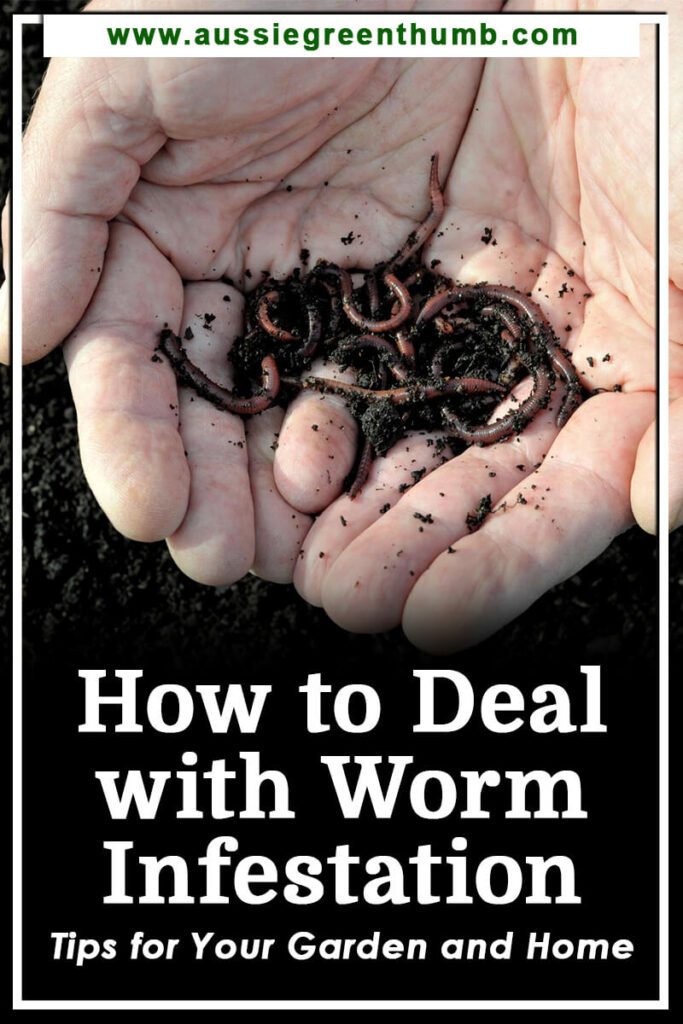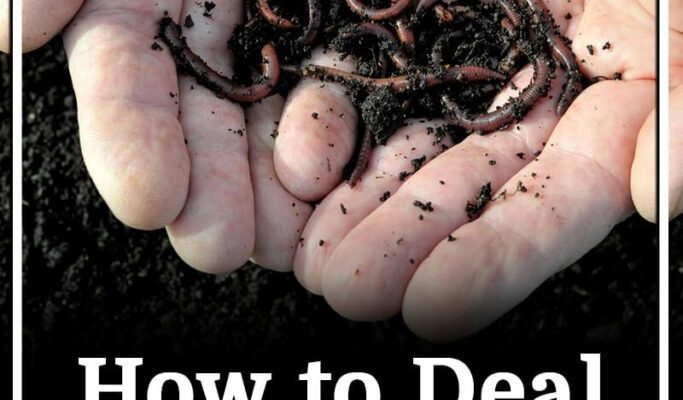
Think of it this way: your garden is like an ecosystem. Each plant, bug, and microbe has a role and needs balance. When that balance tips, unwanted visitors like worms can show up uninvited. So, what’s an enthusiastic gardener to do? Well, let’s delve into the essential steps of garden sanitation that will keep your green paradise both healthy and worm-free!
Understanding Worm Infestations
Worms can be beneficial in many ways, like aerating the soil and breaking down organic matter. But there are times when they become more of a nuisance than a friend. Certain types of worms, like the **cutworm** and **broadleaf** weeds, can wreak havoc on fragile seedlings and established plants alike. You might notice wilting plants or mysterious holes in leaves, and that’s often a sign that you have unwelcome guests.
So, why should you care about sanitation? Well, proper maintenance can significantly reduce the chances of an infestation. A clean garden acts like a fortress, making it harder for these worms to find shelter and food. It’s essential to understand that prevention is always easier than cure—think of it as regular exercise for your garden!
Additionally, infestation can lead to a cascading effect on your entire garden ecosystem. If you’re not careful, the impacts might extend beyond just a few plants. It’s like opening the door for a single nuisance and ending up with a whole crowd.
Regular Cleaning of Garden Tools
Just as you wouldn’t serve food with dirty dishes, your garden tools deserve a good scrub, too. Soil, plant residues, and even moisture left on tools can harbor pests and diseases. To keep your garden clean, make it a habit to clean your tools after every use.
Here’s a simple cleaning routine:
- **Start with a rinse.** Spray off any dirt or debris right after working.
- **Scrub it down.** Use soap and water or a diluted bleach solution for a deeper clean.
- **Dry thoroughly.** Moisture is a breeding ground for bacteria and pests, so make sure your tools are dry before storing them.
It might seem like extra work, but this simple step can prevent introducing worms into your garden. You might be surprised at how effective this routine can be!
Clearing Debris and Weeds
Fall leaves, dead plants, and random weeds can create cozy homes for worms. Imagine leaving crumbs everywhere after a meal—those crumbs attract all kinds of critters, right? Similarly, garden debris can provide the perfect shelter for worms, allowing them to thrive and multiply.
Regularly clearing away debris is crucial. Here’s how to keep your garden tidy:
- **Weekly inspections.** Take a stroll through your garden weekly. Pull up any weeds and clear away dead plants or leaves.
- **Compost properly.** If you’re composting, make sure to do it correctly. Worms can often hitch a ride on contaminated compost.
- **Consider mulch.** A thin layer of organic mulch can help suppress weeds and retain moisture while keeping your garden looking neat.
By staying on top of this, you’re not just improving your garden’s aesthetics—you’re actively preventing a worm infestation.
Proper Water Management
Just like you wouldn’t want to live in a damp basement, worms thrive in overly wet conditions. If your garden has poor drainage, it can create a soggy paradise for them. To protect your plants and keep worms at bay, focus on managing water effectively.
You can implement a few strategies:
- **Check your soil.** Before watering, poke your finger into the soil. If it feels wet, skip watering for another day.
- **Invest in drainage.** If standing water is a persistent issue, consider installing drainage systems or elevating your plants.
- **Water early in the day.** This allows the moisture to soak in before the sun gets too hot, reducing evaporation and ensuring your plants get the water they need.
Managing water properly can create a less inviting environment for worms. It’s all about finding that sweet spot!
Crop Rotation and Plant Diversity
Just like variety is the spice of life, it’s also great for your garden. Planting the same crops in the same spots year after year can attract pests, including worms. By rotating your crops and diversifying what you plant, you can make it harder for worms to settle down in your garden.
Here’s why crop rotation matters:
- **Break the cycle.** If worms have a favorite plant, rotating reduces their chance of finding it again.
- **Improve soil health.** Different plants have varying nutrient needs, so rotating helps maintain balanced soil.
- **Increase resilience.** Planting a mix of crops creates an ecosystem that’s tougher against pests and diseases.
Consider planning your garden layout ahead of time. A bit of foresight can prevent major infestations down the road!
Using Natural Pest Deterrents
Sometimes, you might need a little extra help to kick those worms out. Natural pest deterrents can come to your rescue without the need for harsh chemicals. Think of them as the bouncers at your garden’s door, keeping the troublemakers away.
Here are a few options:
- **Companion planting.** Some plants repel pests naturally. For instance, marigolds can help deter worms when planted among vegetables.
- **Essential oils.** Spraying diluted peppermint or rosemary oil can discourage worms and other pests from invading.
- **Beneficial insects.** Encourage bees and ladybugs that prey on worms. It’s like inviting the right friends to brighten up the party.
These natural options can be effective and are often safer for your garden ecosystem.
Monitoring and Observation
It’s crucial to keep an eye on your garden. Regular monitoring allows you to catch problems before they escalate. When you check for signs of worms or damage, you’re like a detective—investigating the health of your plants and their surroundings.
Be proactive with these tips:
- **Inspect your plants weekly.** Look for any signs of distress, such as wilting or holes in leaves.
- **Keep a garden journal.** Jot down what you see, any changes in plant health, and what actions you take.
- **Educate yourself.** Learn about the specific worms that commonly affect your plants. Knowledge is like a compass on your gardening journey.
The more you know about your garden, the more you can prevent infestations and keep everything thriving.
In conclusion, maintaining a clean garden is essential for keeping worm infestations at bay. By incorporating these sanitation practices—cleaning your tools, clearing debris, managing water, rotating crops, using natural deterrents, and staying observant—you can create a vibrant, healthy garden. It’s a bit of work, but the reward of a flourishing garden is worth every effort! So grab that trowel, and let’s keep those worms out for good!

